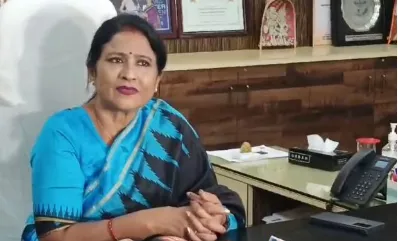

Bhubaneswar, Feb 25: Following the tragic loss of two lives due to falling hoardings, Bhubaneswar is set to launch a crackdown on illegal hoardings across the city. Bhubaneswar Mayor, Sulochana Das, visited the accident site and issued a directive to ensure such incidents do not happen again. The hoarding located in the area around the Durga Puja pandal in Aiginia, was not government-approved.
The Mayor clarified that hoardings in public and residential areas are a safety risk and must comply with legal regulations. She emphasized that hoarding installations must have a valid structural certificate, and any hoarding not meeting these standards would be removed.
Starting from March 6, Bhubaneswar Municipal Corporation (BMC) will begin removing illegal hoardings from residential and public spaces across the city. A survey report identifying dangerous hoardings will be the basis for this action. The BMC has also decided to take action against the advertising agency responsible for placing hoardings without proper approval, including those from Metro Sign, which have been flagged for non-compliance.
If required, BMC will place these agencies on a blacklist, barring them from future work. The mayor highlighted that public safety remains the city's top priority, and the removal of these hoardings is a crucial step in preventing further accidents.